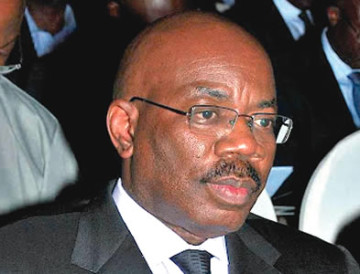There were indications on Monday that the Chairman of Visafone, Mr. Jim Ovia, might have returned the telecoms frequency spectrum awarded to his company, Cyberspace, to the Federal Government.
Cyberspace is Ovia’s fully owned Internet Service Provider business based in Lagos.
It was learnt that he took the decision after the controversy that trailed ex-President Goodluck Jonathan’s issuance of the spectrum to him and the Chairman of Globacom, Mike Adenuga Jnr.
“Barring any change, Ovia is to be refunded the spectrum fee earlier paid short of N30m estimated to be usage surcharge for the period that Cyberspace occupied the frequency band,” a source said.
Our correspondent also gathered that his request to return the 900MHz key spectrum for mobile communication services had been granted by the Nigerian Communications Commission.
The NCC is the nation’s telecoms regulator, which is responsible for issuance of frequency spectrum to telcos and other users of the scarce national resources.
However, the Head, Corporate Affairs, Visafone, Mr. Joseph Ushighiale, stated that there was no way Ovia would return the telecoms frequency spectrum because he never accepted it from the government.
He said, “The government awarded him the spectrum but he rejected it because it fell short of his expectations.”
“What he (Ovia) was offered will not enable him to provide broadband, IMTS and LTE services; so, he politely rejected it.”
“However, Technology Times reported that in quick response to the controversy that had trailed the spectrum sale without a competitive bid, Ovia offered to return the 900MHz spectrum to the nation’s spectrum administrators, and get a refund of an estimated N3bn paid for the resource.”
According to it, Adenuga, the owner of Globacom, who was issued the 700MHz spectrum, remains a beneficiary of the former president’s generosity as he retains the licence for the next two years on an exclusive trial basis.
It was gathered that the Globacom’s spectrum was pegged at a prorated price based on a similar reserve price as the one issued Cyberspace but for only a two-year non-renewable tenor that allowed the company to use the licence “for a pilot operation” that could not be renewed at expiration.
CREDIT: Punchng
 Hottestgistnaija.com
Hottestgistnaija.com





